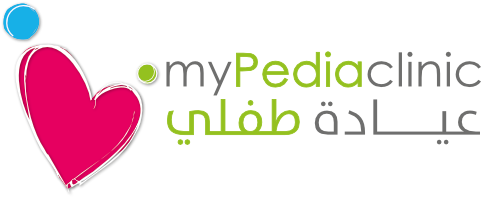Pregnancy is a wonderful and important phase of a woman’s life. To make every moment count and ensure a healthy pregnancy women should embrace healthy lifestyle choices such as eating healthily and staying active throughout this period. Having well-balanced meals every day ensures that the mother and unborn child are less susceptible to fatigue, nutrient deficiencies, infections, and diseases.
Today, most gynecologists, pediatricians, and nutritionists in Dubai and across the globe urge expectant mothers to be extra careful about their diet, to help support the growth and development of their little one and ensure their health and well-being during pregnancy and after. Ideally, all expectant mothers should have nutrient-rich meals, even if their food habits until then haven’t been the best. This doesn’t necessarily mean that you should go on a specific diet. It’s more important to eat a variety of foods daily to get the right balance of required nutrients.
So in this article, our nutritionist in Dubai shares some insights about the need for good nutrition during pregnancy and some of the best foods to consume during this period.
Food consumption and weight gain during pregnancy
During pregnancy, women should gain enough weight to ensure their fetus has a healthy weight. Nutritionists note that for a woman in her ideal BMI (Body Mass Index) range the weight gains should be around 25 to 35 pounds (approx. 11 to 15kgs). For underweight women, the weight gain should be around 28 to 40 pounds ( approx. 12 to 18kgs); for overweight women, it should be around 15 to 25 pounds (approx. 7 to 11 kgs).
For fetal development, expectant mothers must provide glucose, amino acids, and fatty acids. When mothers eat healthy foods, the nutrients are absorbed into their bloodstream, from which it travels to the placenta, which then delivers it to the growing fetus.
Dietary requirements during pregnancy
The dietary requirements for pregnancy are pretty straightforward. Most of the time, when and how much a pregnant woman should eat is flexible and is based on necessity. For instance, women who suffer from morning sickness in the first trimester may consider having a lighter breakfast and a heavier dinner to help keep the food down and ensure that they are receiving the right amount of nutrients. As the pregnancy progresses, the same women may switch up their meal plans by having a larger breakfast and a light evening snack in the third trimester to manage their heartburn or bloating issues. Doctors and nutritionists also recommend expectant mothers do without caffeine and alcohol.
To help expectant mothers plan their daily meals better, here is a simple guideline for ensuring good nutrition during pregnancy-
– Instead of three big meals, eat five to six smaller meals
– Eat five servings of fresh fruits and vegetables. Make sure to include at least two servings of a leafy vegetable, one serving of a citrus fruit, and one serving of a dark orange vegetable. Green veggies and citrus fruits provide vitamin C, vitamin K, vitamin A, calcium, iron, folate, and potassium, which are essential micronutrients for both mother and child.
– Expectant mothers should include six servings of whole-grain bread or cereals, which are packed with fiber, vitamins, and plant compounds. Consider having oats, quinoa, brown rice, wheat berries, and barley instead of refined counterparts like white bread, pasta, and white rice.
– Ensure that you are having three servings of non-fat/low-fat milk or milk products. Dairy products provide extra protein and calcium to meet the needs of your growing little one. Additionally, they are also rich in phosphorus, B vitamins, magnesium, and zinc. Lactose intolerant women can consider taking probiotic yogurt as it’s easier to digest.
– Expectant women should also have two to three servings of extra-lean meats or fish. Salmon is a fatty fish rich in essential omega-3 fatty acids and low mercury levels, and ideal for pregnant women. Lean beef, and chicken are excellent sources of protein. Beef is also rich in iron, choline, and other B vitamins.
– Women can also consider having two or three servings of legumes such as lentils, peas, beans, chickpeas, soybeans, and peanuts. These are wonderful plant-based sources of fiber, protein, iron, folate, and calcium required for your baby’s growth.
– Expectant women should also aim for at least eight glasses of water a day to keep up their hydration. Stay hydrated throughout the day, especially if you have morning sickness.
– Additionally, talk to your gynecologist or nutritionist in Dubai to know whether you require additional dietary supplements during pregnancy. Most doctors recommend folic acid supplements for women who are planning a pregnancy or those in the early weeks to lower the risks of giving birth to babies with neural tube defects (NTD).
Takeaway
Eating well-rounded meals will help your little one grow stronger as well as keep you healthy and fit for pregnancy and beyond. Today, there are numerous recipes and meal plans available that ensure that every bite you take is packed with nutrients needed for you and your baby. If you are unsure about your eating habits and require assistance from an expert, reach out to our nutritionist at myPediaclinic, one of the best pediatric clinics in Dubai.




